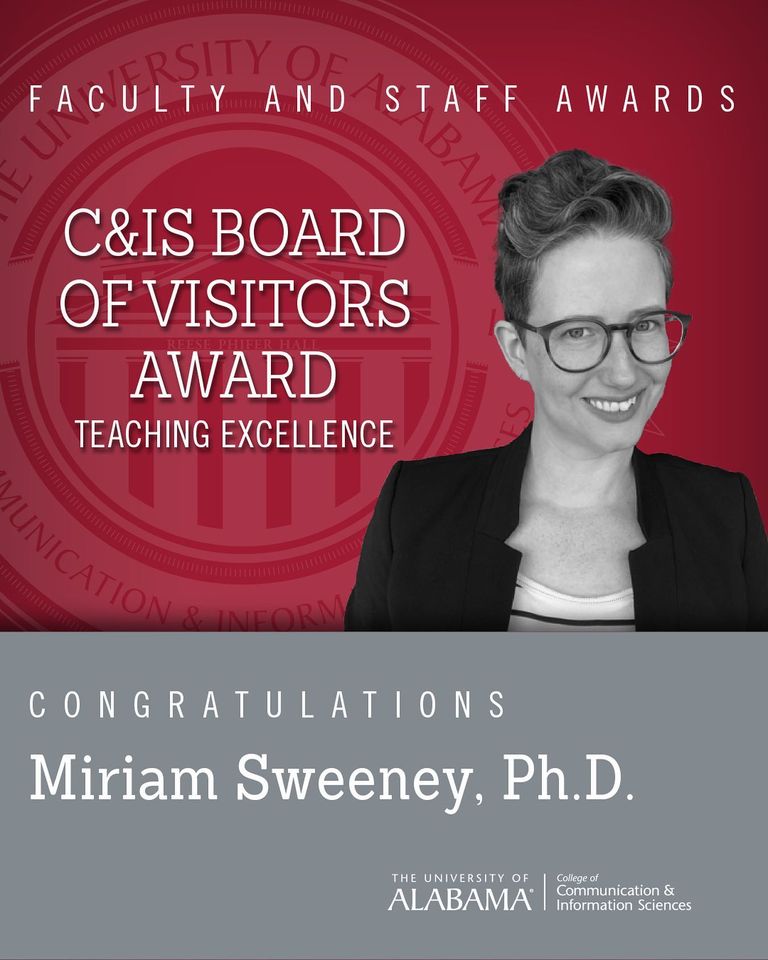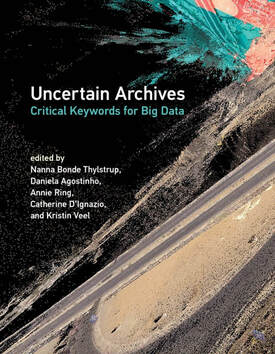|
I'm excited to announce the Dr. Casey Lynch and I have a new paper, "Evolving spatialities of digital life: Troubling the smart city/home divide" out in Digital Geography and Society. This project came together after Casey and I met as a contributing authors for an edited volume, Artificial Intelligence and the City (ed. Cugurullo, Caprotti, Cook, Karvonen, McGuirk, and Marvin), in 2022 and recognized potential for collaboration. It's been a pleasure to work with Casey, and we are very proud of the shape these ideas have taken. Cite: Lynch, C. R., & Sweeney, M. E. (2024). Evolving spatialities of digital life: Troubling the smart city/home divide. Digital Geography and Society, 6, 100085. https://doi.org/10.1016/j.diggeo.2024.100085 Abstract I'm excited to announce that I have officially signed a book contract with Polity Press for a critical project about voice assistants, surveillance capitalism, issues of design, ethics, and the future of voice as a ubiquitous interface. The book is provisionally titled, Voice Assistants, until I find that catchy, sexy title that eludes me at the moment. A brief summary of the book contents for those interested:
This book traces the development of voice assistant technologies melding technical, social, and political-economic perspectives to consider issues such as: the underlying big data infrastructures that voice assistants both depend on and shore up; the design and marketing of voice assistants as domestic/caregiving technologies; how ideologies of gender, race, and class are embedded in the design of voice assistants; the imagined uses (and futures) of voice assistants by the tech companies that design them; the extended data-gathering and reach of voice assistants both within and outside of the home; the ethical and privacy implications of voice assistants; the political economic landscape that frames voice assistants as ideal technological solutions for personal and home management; and the possibilities for reimagining and resisting voice assistants and the paradigm of surveillance capitalism they are imbricated in. Stay tuned for updates on the project!
Facing Our Computers: Algorithmic Literacies as Praxis | Transcript
Miriam E. Sweeney, Associate Professor, School of Library and Information Studies, University of Alabama “Facing Our Computers: Algorithmic Literacies as Praxis” is a call to turn our attention to the current technological environment, characterized by increased reliance on algorithmic technologies, and grapple with it as part and parcel of the broader social, political, and economic landscape. Borrowing from Paulo Freire’s (1972) definition of praxis as “reflection and action directed at the structure to be transformed”, I invite us to consider how ”facing our computers” (i.e. developing critical algorithmic literacies as a reflective tool) might help LIS “expand the conversation” around algorithmic culture in our professional roles in order to better formulate actions and responses that lead us to better collective futures.
Abstract:
Recent examples of virtual assistant technologies designed as Latina information service workers are noteworthy objects of study for their potential to bridge analyses of Latinas’ labor history and information technology. Latinas in the United States have traditionally worked in blue-collar information technology sectors characterized by repetitive labor and low wages, such as electronics manufacturing and customer service. Latina information service workers, though fundamental to technoscience, have been largely invisible in histories of computing. Latina virtual assistants mark a shift in this labor history by relying on the strategic visibility of Latina identity in/as the technology interface. Our research explores Latina virtual assistants designed by Airus Media and installed as airport workers in airports along the southwestern border of the United States. We situate the technocultural narratives present in the design and marketing of these technologies within the broader histories of invisible Latina information labor in the United States. We find continuities between the ways Latinas have historically been positioned as “ideal” information workers and the use of Latina identity in the design of virtual assistants. We argue that the strategic visibility of Latina virtual assistants is linked to the oppressive structures of invisibility that have traditionally organized Latina information service workers. Cite as: Sweeney, M. E., & Villa-Nicholas, M. (2022). Digitizing the “Ideal” Latina Information Worker. American Quarterly, 74(1), 145–167. https://doi.org/10.1353/aq.2022.0007. (Pre-print available at http://ir.ua.edu/handle/123456789/7549.)
I'm happy to share a new article, "Alexa, Are You Listening? An Exploration of Smart Voice Assistant Use and Privacy in Libraries", published with co-author (and SLIS alum) Emma Davis about smart voice assistant use in libraries. Our research explores library use of smart voice assistant technologies in user services and programming, documenting many as-of-yet unresolved privacy issues that these technologies pose for patron communities and also library staff. We urge library workers to consider that smart voice assistants pose harm to many of our patrons as extensions of policing data networks, and argue that the LIS profession has a responsibility to actively engage questions of technological harms and data privacy before advocating adoption of emerging technologies like smart voice assistants in library services.
Read more in our full article, available open access: Sweeney, M. E., & Davis, E. (2020). Alexa, Are You Listening? An Exploration of Smart Voice Assistant Use and Privacy in Libraries. Information Technology and Libraries, 39(4). https://doi.org/10.6017/ital.v39i4.12363 I'm excited to share the news that I have received a $299,997 grant from the National Science Foundation (NSF) for an interdisciplinary project that I am a co-PI on: “Using Problem-Based Learning to Increase the Ethical Reasoning Skills of Electrical and Computer Engineering Students”
The grant will kick off a three-year study that explores how engineering students’ perceptions of social responsibility (used in this work to describe the obligation that professional engineers have to act with the welfare and interests of society at large) changes after participation in this ethics focused course, the persistence of these changes over time, and compare these perceptions against engineering students from other disciplines without the freshman ethics focus. We'll be integrating critical information and data perspectives in the training of engineering students to leverage inter-disciplinary skillsets that are often siloed outside of STEM and not represented in engineering ethics training. Faculty investigators are Todd Freeborn (PI, Engineering), Claire Major (co-PI, Education), and myself (co-PI, Library and Information Sciences). The Center for Critical Internet Inquiry (C2i2), led by Dr. Safiya Umoja Noble and Dr. Sarah T. Roberts, announced the exciting news that they have received a $2.9M Award to launch the multi-year Minderoo Initiative on Technology and Power initiative: “This initiative will critically investigate the social impact of digital technologies on communities and the broader public good. It will create new paradigms for the public to understand the harms of tech platforms, predictive technologies, advertising-driven algorithmic content, and the work of digital laborers.” Congratulations to C2i2 for receiving this award; I'm so excited to be joining C2i2 as a part of their Scholar's Council, which comprises a team of "scholars, artists, activists, and leader who share a commitment to standing up to unjust technologies and systems."
I'm looking forward to working with this amazing group of people to support the development of a better future. Stay tuned! |
Archives
March 2024
Categories
All
|







 RSS Feed
RSS Feed
